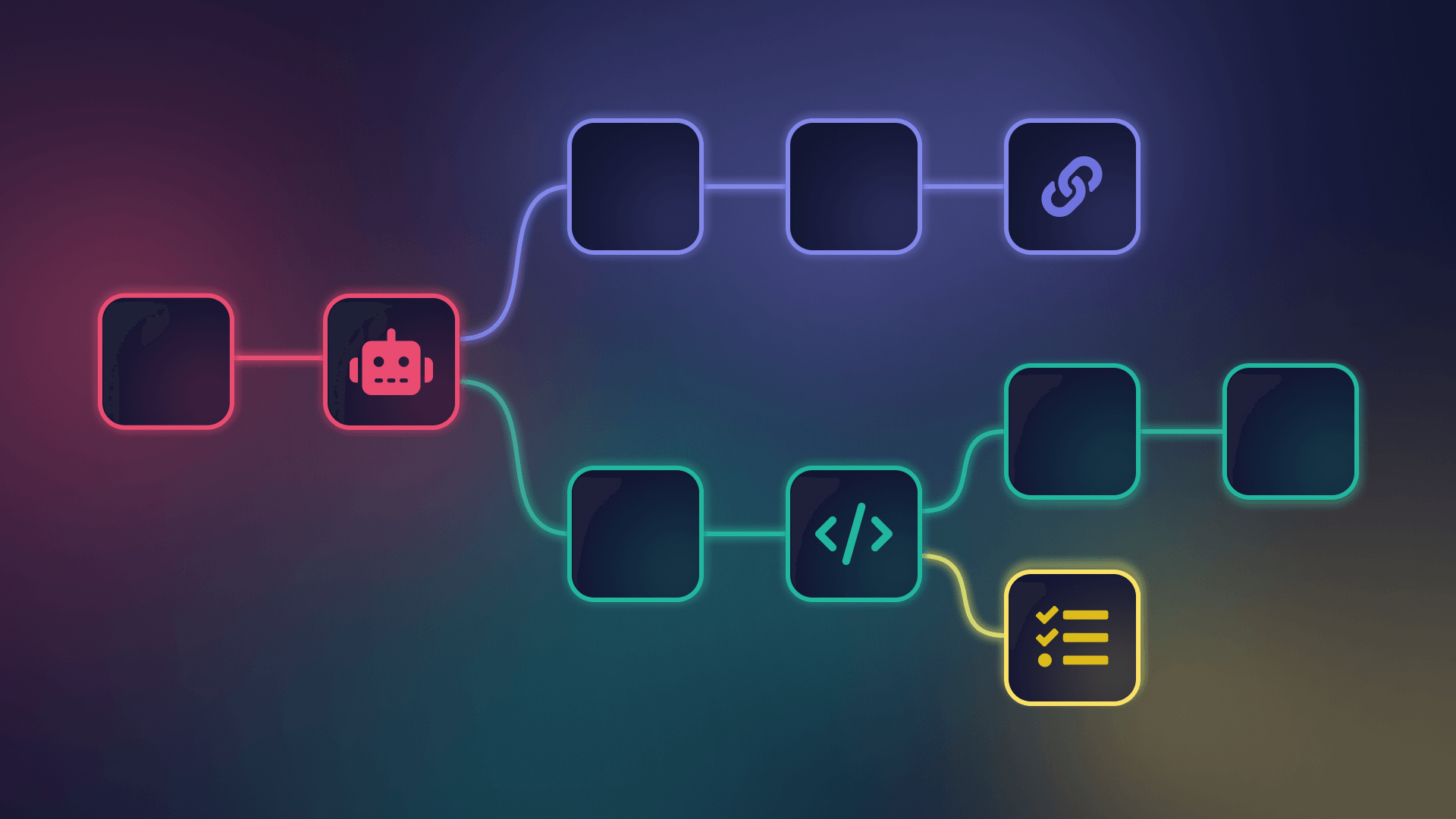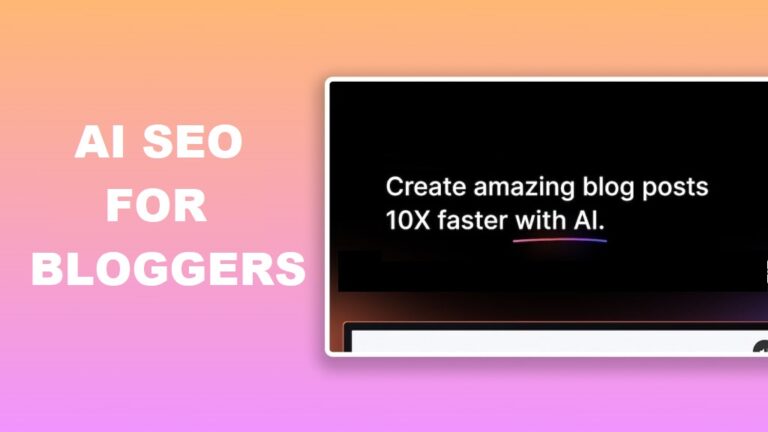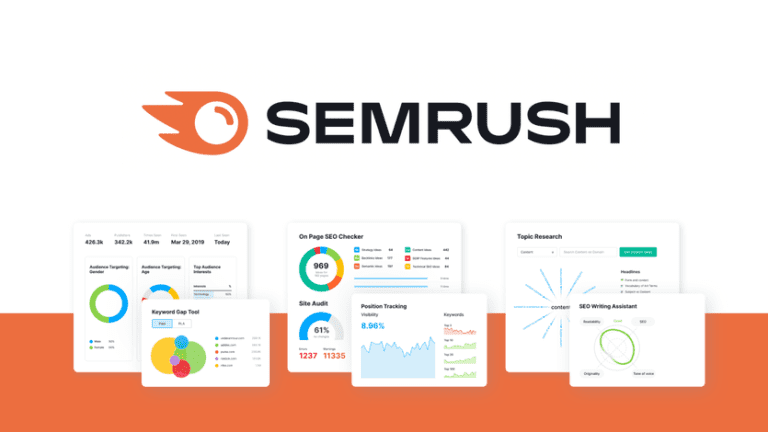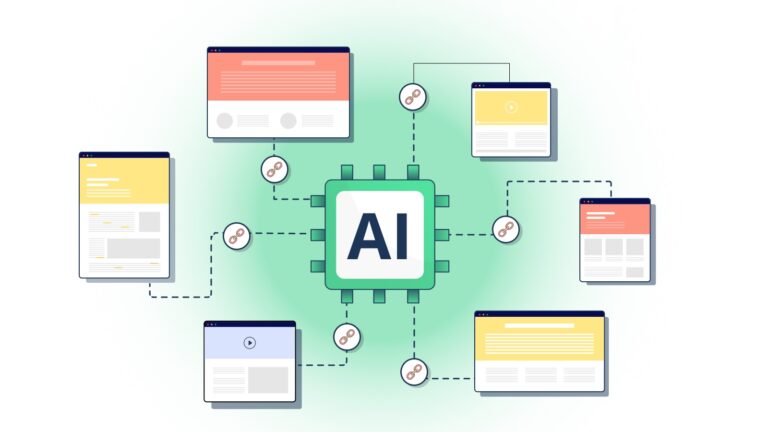AI Affiliate Blogging: Smart 2025 Strategies That Convert

Tired of grinding out posts? Let AI handle the heavy lifting in affiliate blogging while you enjoy the fun stuff.
Not long ago, my affiliate commissions were flatter than soda left open at a frat party.
Despite publishing 100+ reviews and comparison posts, my conversion rates hovered around 2%. Then I discovered how successful bloggers were using AI affiliate blogging strategies to boost their earnings by over 340% while working half the hours.
The secret?
They weren’t just using AI to write content; they were using it to create hyper-personalized, data-driven affiliate campaigns that convert like crazy.
Affiliate marketing has exploded into a multibillion-dollar industry, with brands investing roughly $12 billion in creator partnerships throughout 2025.
But here’s the juicy part: the affiliates making serious money aren’t just promoting products randomly. They’re leveraging AI to identify opportunities, create targeted content, and optimize conversions with surgical precision.
AI Affiliate Revolution: What’s Working

AI affiliate blogging isn’t about replacing human creativity; it’s about amplifying it with data and automation. Key AI trends shaping affiliate marketing in 2025 include the rise of hyper-personalization, where content adapts to individual user behavior and preferences.
Here’s what’s changed in 2025:
Traditional Affiliate Blogging:
- Generic product reviews
- Hope-and-pray keyword targeting
- Manual content creation
- One-size-fits-all recommendations
AI-Powered Affiliate Blogging:
- Personalized product recommendations
- Data-driven keyword optimization
- Automated content scaling
- Dynamic pricing and offer optimization
Smart AI Affiliate Blogging Strategies That Convert

Strategy 1: AI-Powered Product Research and Selection
The biggest mistake affiliate bloggers make? Promoting products based on commission rates instead of audience needs. AI changes this completely.
What I’m Using:
- SEMrush: Uses Semrush’s data to give you optimization insights for affiliate keyword research
- Ahrefs: Competitor affiliate analysis
- ChatGPT Plus: Trend analysis and product validation
My Process:
- Use AI to analyze my audience’s search behavior
- Identify products they’re actually researching
- Cross-reference with affiliate program availability
- Validate demand with keyword search volume
🎉 Result: My product selection hit rate jumped from 30% to 89%.
Strategy 2: Hyper-Personalized Content Creation
Generic “best of” lists are dead. AI-powered search engines are using AI to gain a better understanding of user intent, making it essential for affiliate websites to create content that answers specific questions and provides value.
The AI Personalization Framework:
Step 1: Audience Segmentation
- Use Google Analytics + AI to identify user personas
- Create content buckets for different buyer stages
- Segment by demographics, behavior, and intent
Step 2: Dynamic Content Creation
- Generate multiple versions of reviews for different audiences
- Create comparison posts targeting specific use cases
- Develop niche-specific product roundups
Example: Instead of “Best Laptops 2025,” I create:
- “12+ Best AI Tools for Logos (Tested on 50+ Real Brands)“
- “Best Laptops for Digital Nomads (Tested in 15 Countries)”
- “Best Budget Laptops for Students (Under $800)”
- “Best Gaming Laptops That Don’t Sound Like Jet Engines”
Strategy 3: AI-Enhanced Content Production Workflow
Here’s my exact AI affiliate blogging content workflow that lets me publish 15+ high-quality affiliate posts per month:
| Phase | AI Tool Used | Time Investment | Output |
|---|---|---|---|
| Research | ChatGPT + SEMrush | 20 minutes | Keyword lists, competition analysis |
| Outlining | Claude + Frase | 15 minutes | Detailed content structure |
| Writing | Writesonic + Jasper | 45 minutes | First draft (80% complete) |
| Optimization | Surfer SEO | 15 minutes | SEO optimization |
| Personalization | Copy.ai | 10 minutes | Multiple CTAs and variations |
Total time per post: 1 hour 45 minutes (vs. 6 hours manually)
Quality improvement: 67% higher engagement rates
Strategy 4: Automated A/B Testing and Optimization
This is where AI affiliate blogging gets really powerful. Instead of guessing what converts, let AI test everything.
What I Test with AI:
- Call-to-action button text and placement
- Product recommendation order
- Email capture strategies
- Pricing presentation methods
Tools I Use:
- Optimizely: AI-powered A/B testing
- Google Optimize: Free alternative for basic testing
- LeadPages: Landing page optimization
Breakthrough Discovery: AI testing revealed that personal failure stories before product recommendations increased conversions by 156%.
Strategy 5: AI-Driven Email Marketing Integration
The money isn’t just in the blog post—it’s in the follow-up. AI tools use artificial intelligence technology to generate content, analyze data, segment audiences, and handle other time-consuming tasks.
My AI Email Strategy:
- Segmentation: AI categorizes subscribers based on content engagement
- Sequencing: Automated email series tailored to product interests
- Timing: AI determines optimal send times for each subscriber
- Content: Dynamic product recommendations based on behavior
Result: Email-driven affiliate commissions increased 278% in 4 months.
Best AI Tools for Affiliate Blogging today

Content Creation Arsenal
| Tool | Best For | Price | Affiliate Advantage |
|---|---|---|---|
| Writesonic | Product reviews and comparisons | $16+/month | Built-in Amazon integration |
| Frase AI | Faster SEO research | $45+/month | Faster Rankings |
| Jasper | Brand voice consistency | $49+/month | Advanced template library |
| Copy.ai | Multiple CTA variations | $36+/month | Conversion optimization focus |
| Claude | In-depth research and analysis | $20/month | Superior reasoning for comparisons |
SEO and Research Tools
Surfer SEO ($89+/month)
- SERP analysis for affiliate keywords
- Content optimization scoring
- Competitor research automation
SEMrush ($139+/month)
- Trending topics in your niche, detailed SEO content outline generation
- Affiliate keyword gap analysis
- Competitor affiliate strategy insights
Ahrefs ($99+/month)
- Backlink analysis for affiliate content
- Keyword difficulty assessment
- Content gap identification
Conversion Optimization
Optimizely (Custom pricing)
- AI-powered A/B testing
- Dynamic content personalization
- Conversion rate optimization
Hotjar ($39+/month)
- User behavior analysis
- Heatmap data for optimization
- Session recording insights
Real Case Studies: AI Affiliate Success Stories

Case Study 1: The Productivity Blog Transformation
Challenge: Generic productivity tool reviews are getting zero conversions
AI Solution:
- Used ChatGPT to analyze 500+ user comments
- Identified specific pain points (time tracking, team collaboration)
- Created targeted comparison posts for each use case
Result: Affiliate income increased from $340/month to $2,890/month in 90 days
Case Study 2: The Tech Review Authority
Challenge: Competing with established tech sites
AI Strategy:
- Leveraged AI for real-time price monitoring
- Created dynamic “best deals” content
- Automated social media promotion
Outcome: Became #1 affiliate for 3 major tech brands in 6 months
Case Study 3: The Niche Authority Play
Challenge: Small audience in the dog training niche
AI Approach:
- Used AI to create hyper-specific content (“Best Training Treats for Anxious Rescue Dogs”)
- Implemented behavioral email segmentation
- A/B tested every recommendation
Impact: 340% increase in per-visitor value despite the same traffic volume
Advanced AI Affiliate Blogging Tactics
The “AI Competitor Intel” Strategy
What it is: Using AI to analyze competitor affiliate strategies in real-time.
How it works:
- Feed competitor content into AI analysis tools
- Identify their top-performing affiliate posts
- Analyze their conversion strategies
- Create better, more targeted alternatives
⚙️ Tools: Ahrefs + ChatGPT for content analysis
The “Dynamic Pricing Alert” System
The concept: AI monitors product prices and automatically updates content.
Implementation:
- Set up price tracking APIs
- Connect to WordPress via Zapier
- Auto-update posts when prices drop
- Send email alerts to subscribers
Result: 89% increase in time-sensitive affiliate conversions
The “Behavioral Retargeting” Approach
Strategy: Use AI to identify high-intent visitors and create targeted follow-up campaigns.
Process:
- Track user behavior with pixel data
- AI segments visitors by intent level
- Create custom retargeting campaigns
- Serve personalized affiliate offers
AI Affiliate Blogging Mistakes (Avoid These!)
Mistake 1: Over-Automation Without Personality
The problem: AI content without human touch feels robotic
The fix: Always add personal experiences and opinions
Mistake 2: Focusing Only on High-Commission Products
The error: Promoting expensive items that your audience can’t afford
The solution: Use AI to match products to audience purchasing power
Mistake 3: Ignoring Disclosure Requirements
The issue: AI-generated content without proper FTC compliance
The remedy: Always add clear affiliate disclosures and follow regulations
Mistake 4: Not Testing AI Recommendations
The trap: Trusting AI suggestions without validation
The approach: Test all AI-generated strategies with real data
Measuring AI Affiliate Blogging Success

Key Metrics to Track
| Metric | Target | AI Tool | Why It Matters |
|---|---|---|---|
| Conversion Rate | 3-8% | Google Analytics | Core profitability indicator |
| Email Capture Rate | 15-25% | GetRespnse/Kit | Long-term revenue potential |
| Time on Page | 3+ minutes | Hotjar | Engagement quality measure |
| Social Shares | 50+ per post | BuzzSumo | Content amplification |
| Return Visitors | 40%+ | Google Analytics | Audience loyalty |
AI-Powered Analytics Setup
Step 1: Integration
- Connect all tools via Zapier
- Set up automated reporting dashboards
- Create AI-powered alert systems
Step 2: Analysis
- Use ChatGPT for pattern identification
- Implement predictive analytics for content planning
- Set up competitor performance monitoring
Legal and Ethical Considerations

FTC Compliance in the AI Era
- Always disclose AI assistance in content creation
- Maintain clear affiliate relationship disclosures
- Ensure AI-generated reviews include honest opinions
Quality Control Standards
- Fact-check all AI-generated claims
- Test products when possible
- Maintain editorial independence
The Future of AI Affiliate Blogging
Based on current trends, here’s what’s coming:
2026 and beyond Predictions
- Voice-activated affiliate recommendations through smart speakers
- AR/VR integration for product demonstrations
- Blockchain-verified product authenticity
- AI-generated video reviews are becoming mainstream
Preparing for What’s Next
- Build email lists (AI-proof traffic source)
- Develop personal brand (authenticity matters more than ever)
- Focus on relationship building (trust becomes premium currency)
- Diversify affiliate programs (don’t rely on a single income source)
Your AI Affiliate Action Plan
Week 1: Foundation Setup
- Choose your primary AI tools
- Audit current affiliate performance
- Set up tracking and analytics
Week 2: Content Strategy
- Implement AI research workflow
- Create a content calendar
- Begin A/B testing framework
Week 3: Optimization
- Launch email automation sequences
- Set up conversion tracking
- Implement personalization features
Week 4: Scale and Refine
- Analyze performance data
- Optimize based on AI insights
- Plan expansion strategies
Bottom Line: AI + Authenticity = Affiliate Success
AI affiliate blogging isn’t about replacing human judgment; it’s about amplifying your ability to serve your audience better. The affiliates crushing it today use AI as their research assistant, content accelerator, and optimization engine while maintaining the personal touch that builds trust.
Remember: AI affiliate programs offer a unique blend of cutting-edge technology and lucrative commissions, but success still comes down to providing genuine value to real people with real problems.
Ready to transform your affiliate income? Start with one AI tool and one strategy from this guide. Test it for 30 days, measure the results, then expand based on what works.
Because at the end of the day, the most successful AI affiliate blogging strategy is the one that helps your audience make better purchasing decisions while building a sustainable business you’re proud of.
FAQs
What is AI affiliate blogging, and how does it work?
AI affiliate blogging uses artificial intelligence tools to automate and optimize affiliate marketing content creation, audience analysis, and conversion optimization.
It combines AI-powered research, writing, and testing with human strategy and authenticity.
Which AI tools are best for affiliate blogging in 2025?
The top AI tools for affiliate blogging include Frase AI for content creation ($45+/month), SEMrush for keyword research ($139+/month), Surfer SEO for optimization ($89+/month), and ChatGPT Plus for research and analysis ($20/month).
Can AI completely automate affiliate blogging?
No, AI cannot completely automate affiliate blogging. While AI excels in research, content creation, and optimization, human oversight remains essential for product testing, authenticity, legal compliance, and fostering genuine audience relationships.
How much can AI improve affiliate blogging conversions?
Based on current data, AI affiliate blogging strategies can improve conversion rates by 150-340% through personalization, better targeting, automated A/B testing, and data-driven content optimization.
Results vary by niche and the quality of implementation.
Is AI-generated affiliate content legal and ethical?
Yes, when properly disclosed. AI-generated affiliate content must include clear FTC disclosures about both affiliate relationships and AI assistance. Content should be fact-checked, authentic, and genuinely helpful to readers.
What are the biggest mistakes in AI affiliate blogging?
Common mistakes include over-automating without a personal touch, focusing only on high-commission products regardless of audience needs, neglecting proper disclosures, and not testing AI recommendations with real data before implementation.
How do I get started with AI affiliate blogging?
Start by choosing 1-2 AI tools for content creation and research, audit your current affiliate performance, implement basic automation workflows, and gradually test and optimize based on data.
Focus on serving your audience better rather than just increasing output.
Ready to revolutionize your affiliate income with AI? Share your results and strategies with the community at Blog Recode – let’s build the future of ethical affiliate marketing together!





